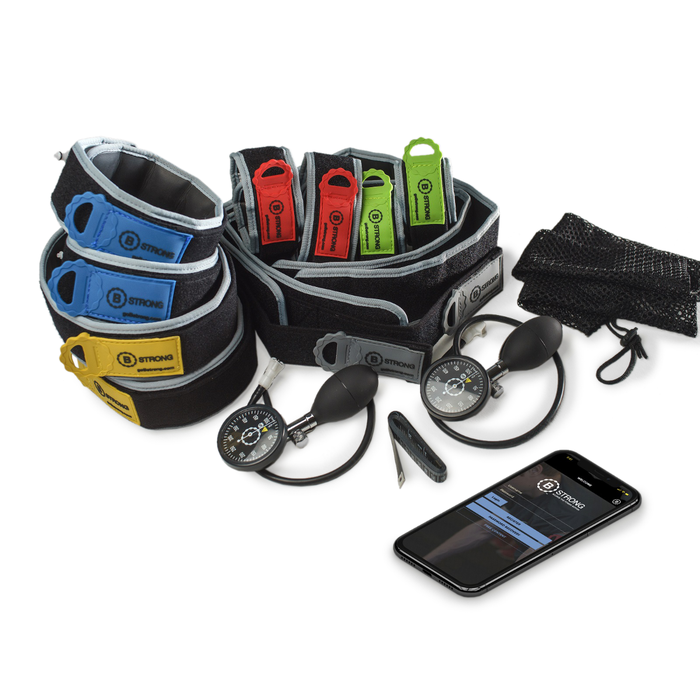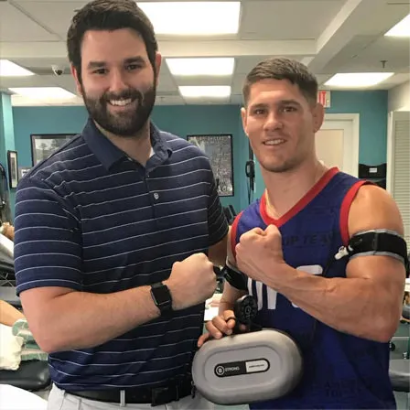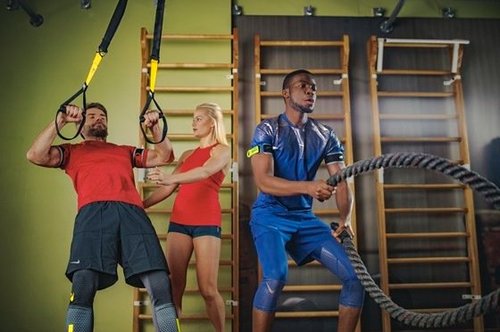NEW YORK - Once considered a secret technique of Olympians to get faster and stronger in a shorter amount of time, blood-flow restriction training is becoming more mainstream.
BFR training has been around in Japan for the last 50 years, thanks to former Japanese powerlifter Yoshiaki Sato but the technique has gained traction in the United States over the last decade. It's exactly what it sounds like: Cutting off the blood flow to targeted muscles.
"With blood flow restriction, we are trying to impede and change the character of the venous outflow from a muscle or from an extremity," Dr. Jim Stray-Gundersen, an Olympic physician, sports scientist, and exercise physiologist, told FOX 5 NY. "That ends up causing the muscle to go into a metabolic crisis, which then causes an upregulation of protein synthesis as well as a response that goes to the brain that in turn releases a lot of anabolic hormones, including growth hormones."
Specialized bands — either elastic bands or fabric and velcro cuffs — are used to restrict blood flow. The practice not only increases the intensity of the workout but stimulates recovery, Stray-Gundersen said.
"Number one is you get your workout over in 15 to 20 minutes, rather than an hour to two hours," he added. "And you recover much faster from that workout so instead of maybe doing a workout every other day, you could even do one twice a day."
Stray-Gundersen, who works with numerous elite athletes (including American Galen Rupp, the defending Olympic bronze medalist in the marathon), said blood flow restriction training can be used by everyone.
"This is really anti-aging medicine. Seniors that may be confined to a wheelchair — well, you're not going to get them to go out and lift 300 pounds in the gym, right?" Stray-Gundersen said. "And what this does is it allows the benefits of regular exercise to come to whatever populations are using them."
B Strong Blood Flow Restriction Training Band System
SOURCE
















